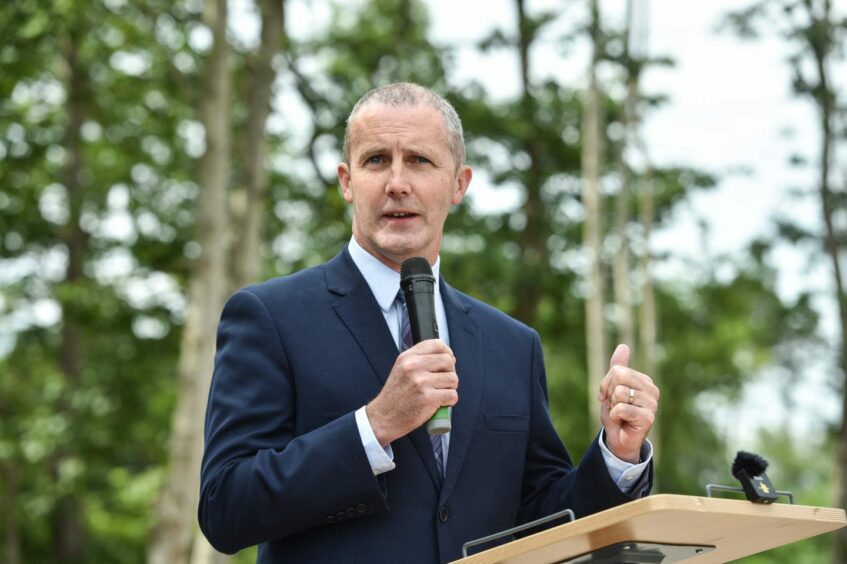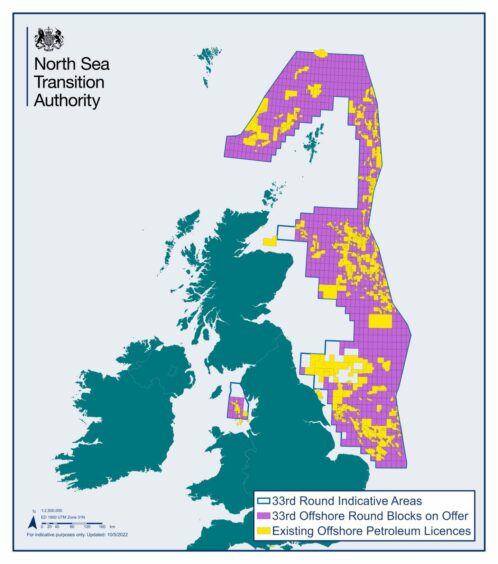
Depending on your point of view, the Scottish Government’s new energy strategy is either a “breathtaking betrayal”, or “welcome” and “correct” – or maybe you’re somewhere in the middle.
While it includes numerous, buoyant predictions about the potential for a just transition to revolutionise Scotland, for many, it will be the North Sea oil and gas policies that leap off the page.
Unveiled by cabinet secretary for net zero, energy and transport, Michael Matheson in Holyrood on Tuesday, the document aims to explore the “challenges of moving away from” from hydrocarbons.
It delivers a rallying cry; for the country to “seize the huge opportunity” that net zero by 2045 presents.
Moreover, the strategy underlines the potential for Scotland’s “vast renewable energy resource” to “deliver maximum benefits” to people, workers, communities and the economy.
In the body of the plan, ministers pay homage to the “transformational impact” the oil and gas industry – and the revenue and jobs linked to it – has had on Scotland.
The north-east, home to Aberdeen, billed as the oil and gas capital of Europe, is specifically namechecked, with praise given for the “prosperity” the sector has brought to the region.
North Sea grabbing the headlines
And while ministers reinforce the crucial part the North Sea, and the people within it, have to play in Scotland’s low carbon future, there are concerns about certain aspects of the plan.
North-east Tory MSP Liam Kerr said the strategy will “represent a far from happy new year” for the tens of thousands of oil and gas workers.
He added: “These workers often feel like an afterthought for this government and that impression won’t improve after today.”
Exploration, checkpoints and reassessments
Notably, the policy states that “there should be a presumption against new exploration for oil and gas”, in order to “support the fastest possible and most effective just transition”.
It stated: “As a country with a rich oil and gas heritage, and in a time of geopolitical crisis, we have a responsibility to balance energy security and national economic and social benefit with our international climate commitments.”
Just last year the UK Government – energy policy remains a reserved power – launched a fresh North Sea licensing round in a bid to boost energy security.
While the process, the results of which are expected soon, is expected to yield over 100 new permits, there is a caveat.
In an attempt to ensure production from new fields is as clean as possible, a climate compatibility checkpoint is in place – all future licences will have to clear it.
But the Scottish Government, while broadly supportive of the idea “in principle”, says the current barriers are “not rigorous enough to align with climate commitments under the Paris Agreement”.
Ministers have called for the introduction of a “more rigorous package of tests” that “reflect the full global emissions impacts of oil and gas activity”.
For “all new exploration and approved offshore” licences, where drilling is yet to start, they are pushing Westminster to asses them against “our climate checkpoints”.
The strategy stated: “Scottish Government policy is that climate compatibility checkpoints for oil and gas licensing should extend beyond new licensing rounds to cover fields that are consented but not yet in production.”
In 2021, at the height of COP26 fever in the UK, First Minister Nicola Sturgeon asked the UK Government to “reassess” oil and gas licences already issued – including the controversial Cambo development.
‘We will need gas and oil for decades to come’
While welcoming some part of the strategy, Jenny Stanning, external relations director at trade body Offshore Energies UK (OEUK), emphasised the ongoing need for domestic oil and gas production.
She said: “Our industry has pledged to work with the Scottish Government towards its target of net zero carbon emissions by 2045.
“So we strongly support the draft strategy’s commitment to develop a Scottish hydrogen economy, including the exciting ACORN project in the north-east.
“Acorn would be the core of both Scotland’s hydrogen production industry and the development of its CO2 capture and storage technologies.
“However, we are concerned at the statement’s suggestion of accelerating the decline in oil and gas production.
“Scotland gets 79% of its total energy from oil and gas according to its latest official figures. Across the UK about 24 million homes (85% of the total) rely on gas boilers for heat and we get 42% of our electricity from gas. We also have 32 million vehicles running on petrol and diesel.
“These plain facts means we will need gas and oil for decades to come. Additionally, in Scotland alone, the offshore industry supports 90,000 jobs. Across the UK it’s around 200,000.
“So we need to ensure that the final strategy acknowledges the continuing role of oil and gas in Scotland’s energy security and economy – as well as our sector’s role in a rapid transition to a low-carbon future.”
Recommended for you


 © Supplied by DC Thomson/ Jason He
© Supplied by DC Thomson/ Jason He © DC Thomson
© DC Thomson © Supplied by NSTA
© Supplied by NSTA © Shutterstock / Oil and Gas Photo
© Shutterstock / Oil and Gas Photo © Supplied by OGUK
© Supplied by OGUK